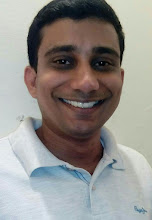Among the things technology has rendered man with is amended way of satisfying voyeuristic instincts. The low-priced porn magazine – where climax is major disappointment when stimulating pictures often applied scissor, the cassettes – not moving ahead when important scene is imminent, the CDs – straight coming to bold scenes, puncturing the heightened excitement even before it builds up and the internet – free for all to fall – readers of Savitabhabhi will vouch. Those born during ’70s & ’80s will vividly remember their transformation from childhood to adulthood amidst being witness to all these changes. All through, quality over availability becomes norm.
The same age-group may recall similar changes in reading habits. For half a century, Chandoba has enthralled urban Marathi middle class kids. Parents cut down expenses on toys to prefer Chandoba, a comics. It’s also a time to connect with Hindi through Chacha Choudhari.
When mythological tales from Chandoba stop enthusing kids, Faster Fene, a marathi version of detective Tom Sawer by B R Bhagwat tucks in by parents. When Faster Fene fables, often seen a driving force for kids’ sustenance in reading, takes fantasies of adventure on newer scales, consider that time has arrived to move on.
It’s an age when kids become teens to usher into higher schools – a place to get acquainted with non-veg jokes. Thus have novels laden with romance, thrill and emotions. This is the era to read Baburao Arnalkar and get fascinated by his thrillers. Mesmerized readers typify with hero from Arnalkar's best sellers.
When desi thriller quota stop stimulating, Sidney Sheldon, Agatha Chirsti takes the charge. They are also reminiscent to Suhas Shirvalkar and Srikant Sinkar. Remember, its also the time to read Mills and Boon romance stories. The reading walks parallel with college life. Slowly reader moves on to all time bestsellers – Godfather (Mario Puzo), Papillion (Henri Charriere). For 90’s born, Chetan Bhagat becomes favorite. For others, Paulo Coelho, Ayn Rand, Dan Brown prevails upon.
In Marathi, taste shift to another level of writers – P L Deshpande, V P Kale, D M Mirasdar, Jayawant Dalvi, V S, Khandekar, Shivaji Sawant. As taste matures, reading reaches another level.
When we are ready enter into professional world and leave behind the memories of college eon, time for readers to come out of comfort zone and try reading that challenges.
Vijay Tendulkar, G A Kulkarni, Irawati Karve, Bhalchandra Nemade, Durga Bhagawat Ranganath Pathare, Vishwas Patil, Sadanand Deshmukh and similar, broadens our horizons. Indian English readers (non-aficionado) looking for anglo Indian authors rest on Amitava Ghosh, Anita Desai, Khushwant Singh, Arundhati Roy.
Here, we cross a thin line and bid adieu to popular fiction to try more and more challenging one.
I am waiting for that moment.

